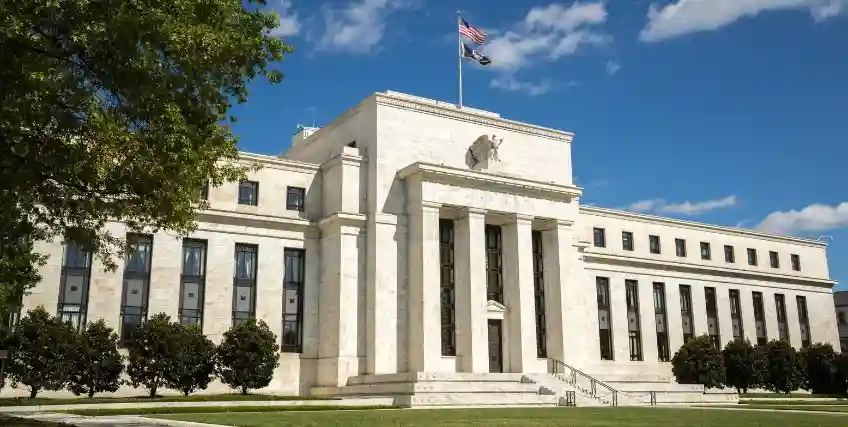What Are Secured Loans
& How Do They Work?
Looking for Business Financing?
Apply now for flexible business financing. Biz2Credit offers term loans, revenue-based financing, lines of credit, and commercial real estate loans to qualified businesses.
Set up a Biz2Credit account and apply for business financing
Every successful business starts with a strong foundation and for most startups, that includes stable access to cash flow. Startup business loans offer new businesses with a financial springboard to cover initial-stage expenses and support early growth. A secured loan offers a dependable way to access funding by using an asset as collateral. Subsequently, this security helps lenders offer better interest rates and higher limits, making it easier for new entrepreneurs to grow. These loans can help buy equipment, hire employees, rent office space, invest in online marketing and more. However, getting a loan as a new business isn’t easy.
Traditional banks often see startups as high-risk, which is why knowing the available loan options, eligibility, and how to prepare for approval matters. There are different types of small business funding available, each with its own terms, process, and benefits. So, whether you're launching a tech startup or opening a café, a secured loan can offer businesses a breathing room they need, to move forward. With digital lenders now offering secure loans online, applying for startup funding is simpler than ever. This page explains everything first-time entrepreneurs need to know, starting from SBA loans to microloans. It also highlights how to use secured loans to build a startup's strong financial foundation.
Alongside secured business loans, entrepreneurs can also explore secured personal loans or home equity lines of credit to manage expenses such as home improvement or debt consolidation. Responsibly using secured credit cards or maintaining checking accounts, can help form credit and improve overall creditworthiness. Lenders often assess financial goals, debt-to-income ratios, and sometimes even life insurance value, when evaluating loan applications. This is especially true for those with a lower credit score. Understanding how secured loans work, whether opting for a fixed rate or variable, helps in making informed decisions. Tools like a loan calculator to compare options or plan repayments for student loans, unsecured personal loan, or a certificate of deposit, is also used by many borrowers. Managing these types of credit ensures access to better financial products in the future, while keeping room for unexpected expenses.
What Are Secured Loans?
A secured loan is a type of financing supported by collateral, such as property, equipment, or savings. This security reduces the lender’s risk and allows them to offer more flexible terms, lower interest rates, and higher loan amounts. For startups, this structure provides access to essential funds that might otherwise be difficult to obtain. Secured loans can fund working capital, equipment, marketing, or even office expansion of a business, without draining personal savings.
Secured Loan: Key Features
- Collateral-backed financing with flexible repayment terms
- Easier approval for startups with limited credit history
- Competitive secured loan rates compared with unsecured options
- Access to larger loans suitable for business growth
Why Choose a Secured Business Loan for Your Startup?
Choosing a secured business loan offers multiple advantages, particularly for new entrepreneurs eyeing for growth and lessened financial risk. Below are a few reasons why some may prefer secured loans:
1. Lower Secured Loan Rates
Since loans under this financing solution are backed by collateral, lenders typically offer lower interest rates than unsecured products. This translates to manageable repayments and reduced overall borrowing costs.
2. Higher Borrowing Limits
Secured loans allow larger funding amounts, which are ideal for equipment, inventory, or property purchases.
3. Easier Eligibility
Startups often struggle to meet strict unsecured lending criteria. Collateral helps bridge that gap, improving approval chances even with limited credit history.
4. Longer Repayment Terms
Many of the best secured loans come with longer repayment periods, reducing monthly strain and giving your business time to stabilise.
5. Build Business Credit
Timely repayments help build a business's credit profile if the lender reports to credit bureaus, strengthening eligibility for future financing.
Types of Secured Loans for Startups
Not all secured loans are the same. Choosing the right one depends on a startup’s business goals, assets, and funding needs. Read below to know more:
1. Equipment Financing
Ideal for startups needing heavy machinery, tools, or technology. The financed equipment itself acts as collateral. The benefits include preserving working capital, spreading payments over time, and easier approval for asset-heavy industries.
2. Secured business line of credit
This is a revolving credit option that allows withdrawal of funds as needed, up to a set limit. Collateral such as property or receivables secure the credit line. This is a popular choice managing cash flow, covering seasonal expenses, and handling emergencies.
3. Property-Backed Secured Loans
Leverage owned property to secure substantial funding for long-term investment or expansion. The benefits include lower rates, high approval chances, and predictable repayment schedules.
4. Vehicle or Asset-Based Financing
Startups in logistics, transport, or production, can make use of business vehicles or other assets as collateral to access flexible funding.
5. SBA 7(a) Loans (Partially Secured)
Government-backed loans that combine lower interest rates with longer tenures for qualified applicants. Though the approval process is detailed, these loans remain one of the best secured loan options for eligible startups.
How Secured Loan Rates Work
Understanding how secured loan rates work, helps you plan better and negotiate wisely. Listed below are the factors that influence loan rates:
- Type and value of collateral: Stronger assets often mean better terms.
- Credit history: A higher credit score signals reliability and lowers your rate.
- Loan tenure: Longer terms may carry slightly higher rates.
- Lender type: Traditional banks vs. online lenders may vary in flexibility.
- Market conditions: Economic changes can influence base interest rates.
How to Apply for Secured Loans Online
Applying for secure loans online is straightforward when you’re well-prepared. Most lenders and fintech platforms have digital application portals designed for startups. Here’s the step-by-step process:
- Compare lenders and their secured loan rates.
- Prepare documents, such as business plans, tax returns, and collateral proofs.
- Submit your application online; ensure all details match official records.
- Await review and valuation; lenders assess both financials and collateral.
- Review and sign the offer. Check interest rates, repayment terms, and clauses.
If approved, funds are often disbursed quickly. Online applications save time and reduce paperwork, when compared with traditional banking routes.
Key Factors That Affect Approval
Lenders assess multiple aspects before approving a secured business loan. Understanding these criteria can improve your success rate.
- Credit Score: Reflects your reliability as a borrower.
- Collateral Value: Determines the amount you can borrow and affects rates.
- Business Plan: Demonstrates your revenue potential and repayment capacity.
- Cash Flow: Consistent inflows show financial discipline.
- Industry Risk: Certain sectors face stricter scrutiny due to market volatility.
Strengthening these areas boosts your eligibility and can secure better loan terms.
Pros and Cons of Secured Loans
Secured business loans come with advantages but also a few trade-offs, that startups should evaluate carefully. On the positive side, secured loans typically offer lower interest rates, higher borrowing limits, and easier approval. This makes them a reliable choice for new businesses that need stable funding and stable repayment terms. However, the same collateral that secures the loan can become a risk if repayments are missed. The approval process of a loan often involves detailed valuation and paperwork. For startups with limited assets, qualifying for a large, secured loan may also prove challenging. Here are a few pros and cons if approved:
Pros
- Lower interest rates and predictable repayments
- Higher loan amounts for capital-heavy businesses
- Easier access for startups with limited credit
- Flexible repayment schedules
Cons
- Assets may be claimed in case of default
- Longer approval times than unsecured options
- Not ideal for entrepreneurs without sufficient assets
Understanding both sides of the coin, helps you make an informed decision and balance risk with opportunity.
How to Get Some of the Best Secured Loans
Smart preparation significantly improves approval chances and ensures you secure the most competitive deal. So, to find the some of best secured loans for a startup, consider these strategic steps:
- Strengthen Your Credit: Pay existing debts and review your credit report for errors.
- Prepare a Strong Business Plan: Highlight realistic revenue, cash flow, and projections.
- Choose the Right Collateral: Use assets with clear titles and reliable valuations.
- Compare Secured Loan Rates: Look beyond interest; check processing fees, prepayment terms, and flexibility.
- Apply Online: Many lenders offer quick, secure loans online with minimal documentation.
Business that not only survives but thrives
A secured business loan can be the deciding factor of a startup’s long-term success. For new entrepreneurs, building a business often means balancing their ambition with financial stability. Thus, access to capital plays a key role in that journey. By choosing a secured financing option, you’re not just borrowing; you’re investing in your company’s starting point. Lenders can offer lower annual percentage rates, higher borrowing limits, and flexible monthly payments, based on the collateral you provide. This may include real estate, equipment, or savings accounts. This helps businesses achieve growth goals without straining finances.
Predictability is another major benefit of secured loans, which is crucial for any startup in its early phases. A secured business loan offers organized, long-term financial clarity as an alternative to continuously worrying about high-interest debt or short-term funding. Further, it helps cover vital costs, like office setup, hiring, and marketing, while maintaining a buffer for unforeseen or unpredictable costs. Startups in the manufacturing, logistics, or real estate industries, require high upfront investment and can benefit from this form of capital. It lets them operate confidently, without relying solely on personal funds.
Ultimately, signing up for the right funding is about paving your way to freedom, not constraint. So, whether you’re launching your first product or expanding into new markets, the right loan can help you get there. Take time to research, prepare a solid business plan, and explore your financing options carefully. With strong planning, informed decisions, and a well-chosen secured business loan, you can build a business that not only survives but thrives.
Trusted by Thousands of Small Business Owners in America.**
Simply because we get what you go through to build a business you believe in.
**Disclaimer: All stories are real, as told by real business owners. Customers do not receive monetary compensation for telling their stories.
From One Entrepreneur to Another: We Get You
We understand what's behind building a business you believe in.
All stories are real, as told by real business owners. Customers do not receive monetary compensation for telling their stories.



Articles on Secured Loans
Navigating the Shift: How Recent Fed Rate Cuts Are Influencing Secured Loan Rates
For the past two years, getting a business loan has felt very difficult due to rising interest rates. Now, the Federal Reserve is unwinding its rates
How to Choose the Best Secured Loan for Your Small Business
Small business owners often reach a point where they need to borrow to continue growing or meet monthly expenses. The challenge...
Secured Business Loans: A Complete Guide for Small Business Owners
Accessing capital can be a continual challenge for many small business owners. Whether you’re looking to bridge a cash flow gap, purchase...
Tips to Qualify for a Secured Line of Credit Eligibility & Collateral Requirements
A secured line of credit offers individuals and businesses the flexibility to borrow funds against assets they own, unlocking financial opportunities...
Frequently Asked Questions about Secured Loans
1. What is a secured business loan and how does it work?
A secured business loan is a type of financing backed by collateral, such as property, equipment, or cash held in a savings account. This security reduces risk for lenders, allowing startups to access larger funds at lower annual percentage rates (APR).
2. What are the current secured loan rates for small businesses?
Average secured loan rates range depending on the type of collateral, credit score, and loan tenure. Startups with strong FICO scores or valuable personal assets, often qualify for the best secured loans with lower interest rates and flexible repayment options.
3. Can I apply for secured business loans online?
Many banks, fintechs, and credit unions all over the U.S., now let startups apply for secured loans online. You can compare personal loan rates, submit a loan application, and upload documents through secure digital portals. Platforms regulated by the NMLS and FDIC ensure safe transactions and transparent lending terms; ideal for small businesses.
4. What collateral do I need for a secured business loan?
Common collateral options include property, vehicles, equipment, or savings, depending on the lender's policy. Some lenders also accept home equity loans, HELOCs, or auto loans as security. Offering strong, verifiable collateral helps improve approval chances and reduces interest rates.
5. Are secured business loans good for startups?
Secured business loans are among the most effective ways for startups to build their credit, secure better personal loan rates, and maintain healthy cash flow. By utilizing collateral, you can be approved for higher funding than typical unsecured loans or credit cards allow. With responsible repayment and proper planning, these loans can help your startup achieve both short-term stability and long-term growth.
Term Loans are made by Itria Ventures LLC or Cross River Bank, Member FDIC. This is not a deposit product. California residents: Itria Ventures LLC is licensed by the Department of Financial Protection and Innovation. Loans are made or arranged pursuant to California Financing Law License # 60DBO-35839




